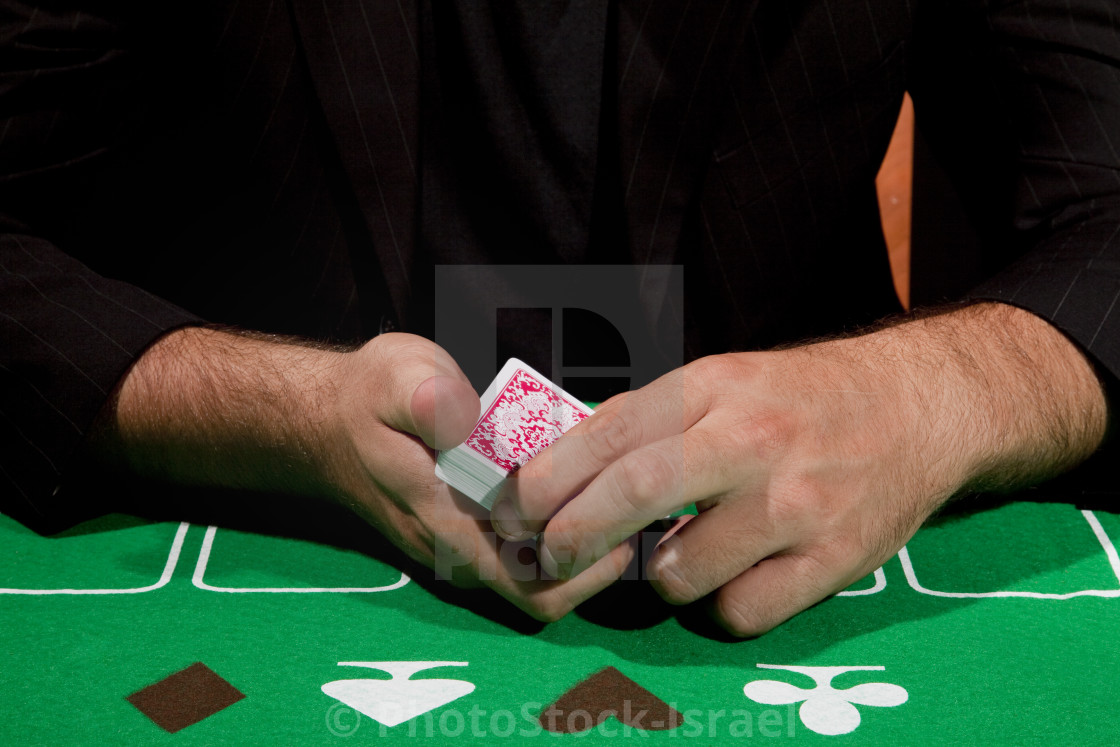Israel Gambling License
- Israel Gambling License Requirements
- Israel Gambling License Laws
- Israel Gambling License Plate
- Israel Gambling License Application
There are two main legitimate, regulated gambling activities in Israel, namely lotteries and sports betting. The National Lottery organization has a permit to operate lotteries and scratch cards at. Playtech plc is licensed and regulated by the UK Gambling Commission, remote operating licence number 038516-R-319097-019 and non-remote operating licence number 038516-N-319098-010. Playtech plc holds a Critical Gaming Supply Corporate license Number MGA/CRP/137/2007, issued on 06 December 2018 by the Malta Gaming Authority. In 1928, when Russia was under Soviet Rule, all forms of gambling were banned. This was the case until the late 1980s. Slot machines were legalized in certain locations in 1988, and the gambling ban was lifted completely in the following year.
Israel Gambling License Requirements
Online gambling. The Bank of Israel has placed substantial burdens to online gambling related transactions involving operators from foreign countries. The notice puts severe limitations on banks.
Gambling with the Jewish Law
by Yehudah Poznick
During the last elections in Israel approximately three years ago, over thirty political parties ran for seats in the Knesset, the Israeli Parliament. One of them, 'The Casino Party', had a very provocative platform: to legalize casino gambling in Israel. Some of the reasons for such legalization were as follows:
1) to compete with the tremendously successful Palestinian casino in Jericho, which was to be followed by another in Tull-Karm,
2) to keep the Israelis' hard-earned money in Israeli hands, which could help fund various social programs (as does the lottery presently),

3) to provide people with jobs, and undoubtedly other rationalizations.
Israel Gambling License Laws
But, the arguments against were also strong:
1) casino gambling has a certain association with organized crime--why actively assist Mafioso's with another means of making money,
2) the addictive nature of gambling, and the possibility of only creating another ill of society, and
3) legalizing it somewhat 'koshers' an otherwise dishonest means of making money--what difference is there between casino gambling and someone ripping people off at three-card-Monty (which is illegal in many areas where gambling has been legitimized).
Let's have a look (hardly an exhaustive one) of what Jewish traditional sources say about gambling and how honest it is:
The Talmud lists the following people as invalid to serve as witnesses, and all the more so to serve as judges:
* Dice players--i.e., people who live off winnings from gambling
* People who lend out money on interest
* Pigeon raisers (two reasons given as to why this is problematic:
1) they train their pigeons to attract other people's pigeons--even if the other person only captured pigeons and never paid for them, still it is dishonest
2) they use them to race against other pigeons--another example of forbidden gambling)
* Those who do business with produce of the Sabbatical year (which has a certain degree of sanctity to it, and is forbidden for commercial use, but is rather to be declared ownerless and free to all)
Rabbi Yehudah qualifies the above-mentioned list: this only applies if they have no other occupation other than this--if they earn an honest livelihood by some other means, they are still valid to serve as witnesses and judges.
Rashi, the major commentator on the Talmud, explains that Rabbi Yehudah is coming to tell us that the reason for these people being invalid is that they do nothing to actively to promote settlement of the world by means of a productive livelihood. They therefore lack the sensitivity to what is proper and just, are ignorant of proper business practice, and are therefore deficient in fear of G-d.
The Talmud entertains another possibility why to invalidate dice players--asmachta--'reliance': the money he is willing to gamble in the course of the dice game is laid out unwillingly, only insofar as to put a stake on his opponent's money. He is relying on something (winning the dice game) which presently has no basis in fact, to gain profit. The Rabbis set the rule that 'asmachta lo kanyia' there is no acquisition in this case Therefore the money he puts down in the game is not relinquished whole-heartedly. If he should win his opponent's money, it is considered theft to some extent. (One major point to permit lottery winnings is the fact that those who buy lottery tickets know that if they lose, the money will go to all sorts of social programs, so they accept the loss, at least after the fact.)
The Talmud commentators make an interesting distinction: if the game is purely one of luck, with no skill involved (e.g., a slot machine), the money gambled is relinquished at the very beginning of the game, so that the winnings are not classified as theft. If the participants are also relying on their skill, (for example, backgammon, which involves skill, an element of luck, and the doubling cube--outright gambling) it means that the players do not whole-heartedly giving up their money in the case of a loss. A person who plays backgammon always puts down the money because he thinks he's more skilled than his opponent, and even if he should lose, will always feel that he was cheated. So it's a problem of theft if the opponent makes use of the earnings.
Some practical examples are if a person gambles, and makes no use of the earnings, but has them ear-marked as for more gambling, and gambles just as a pastime:

If one has no livelihood but lives from investments, and he gambles just as a pastime, making no use of the earnings other than for more gambling:
Maimonides (known also as the Rambam) would rule that he's fit to serve as a witness, since there's no theft involved--the very money he won today, he could lose tomorrow.
Rashi, however, who doesn't emphasize the theft aspect, but rather that of not actively working to settle the world by productive work, would rule oppositely: the person who doesn't work at all, and just passes his time with gambling, is invalid to serve as a witness--he doesn't sufficiently appreciate the value of money, and may easily be bribed if he serves as a witness, or will not appreciate the importance of the money at stake, since he uses the money only as a means of making the game more interesting.
If one has another livelihood, but it doesn't provide enough income:
Maimonides would say we must assume that he's living off the gains from his gambling, and the money is earned through something that borders on theft
But Rashi would rule that one works at least a little bit, but gambles to earn extra money, would be allowed to serve as a witness, since he understands the meaning of money, and knows what is at stake in the trial.
A medieval rabbi in Italy, Rabbi Leon de Modena, had a very great penchant for gambling, despite all the above-mentioned legal problems with the earnings. Sensing that there's a problem with his hobby, he wrote a dialogue where he proves to his 'opponent' that someone who is addicted to gambling can, if not careful, end up transgressing all of the Ten Commandments. Once a person gets involved in gambling, he could get involved in various dubious schemes for making quick money and from there it is a short step to all negative activities.

Or, a person has losses to cover, and someone offers him money to serve as a witness in a court case. He really didn't witness the transaction he is told to attest to--but again the dollar signs dancing in front of his eyes cloud his better judgment.
In short, if a person who otherwise earns a good living puts down money in a game just to relax a little bit having a leisurely game with some friends, and the money used is purely for increasing interest in the game, with no-one really expecting to rake in the other guys' money, that would be fine. However, the game must not reach the point of an addiction--one should always keep his sights on the fact that it is just a game.
~~~~~~~
from the February 2003 Edition of the Jewish Magazine
Israel is an absolutely fascinating place when it comes to how the hightech world and some of its biggest successes have been forged. And one of its biggest stars Teddy Sagi started the technology that runs gambling software to power online casinos. His company Playtech now acquires other companies for billions. Like crypto and cannabis, dealing in this grey area can be confusing for everyone. Let’s look deeper: Israeli law places a general ban on all gambling activities, save for two, in the form of a national lottery and national sports betting operator monopoly. These two services are regulated as follows:
- National Lottery (Mifal Hapayis): Launched in 1951, the Mifal Hapayis lottery offers a weekly subscription lottery, scratch cards and a range of other raffles and lotteries. Its operations are regulated and monitored by the Ministry of Finance.
- Israel Sports Betting Board (ISBB). Launched in 1967, the ISBB has all rights to plan and supervise sports betting in the country.
Apart from these two exceptions, Israel’s Penal law 5737-1977 prohibits betting and games of chance, organizing of lotteries, and running venues where these activities happen.
Chapter 12 of the Penal Law named, “Prohibited Games, Lotteries and Betting” consists of several provisions around gambling, like the prohibition of betting and gambling games as well as the participation in the prohibited games.
According to the law, a prohibited game is one which the player can gain valuable consideration, win money, or benefit as per the game’s outcome – with that outcome arising from chance as opposed to ability or understanding.
- The lottery is any setting where it’s possible to gain valuable consideration, win money or a benefit, with the outcome basing on chance rather than one’s ability or understanding.
- Betting is any setting where it’s possible to win money, a benefit or valuable consideration, with the outcome depending on chance, including lotteries linked to the result of sporting competitions and games.
- Place of prohibited games is a venue where the prohibited games often take place – whether open to specific individuals or the public, or other purposes.
Israel Gambling License Plate
The Penal Law highlights three categories of gambling – though practically, these broad definitions cover all kinds of gambling. You may have realized that the descriptions sought of overlap and that one form of gambling may fit into another category and so on. Under Chapter 12 of the Penal Law, the Israeli courts recognize the following as gambling: sports betting, lotteries, betting, and slot machines.
Online gambling
The Bank of Israel has placed substantial burdens to online gambling related transactions involving operators from foreign countries. The notice puts severe limitations on banks and other financial institutions to gambling-related transactions. And while there aren’t any specific laws around blocking of payment, there is secondary legislation that allows Israel law enforcers to order financial institutions to prevent the transactions related to online gambling.
Israeli and gambling
Israel Gambling License Application
In as much as the country has attempted to prevent its citizens from gambling on any casino online, the measures are not as effective as it wants them to be. Players still find ways to infiltrate the market. Besides, the Israeli punters love to participate in these games and often find ways of signing up at sites that are blocked (as well as those that aren’t). The law cannot punish these online casinos because they are out of Israel’s jurisdiction. And since no law implicates Israeli citizens who play on these online casinos, no one seems to care about the prohibitions – at least as of yet.